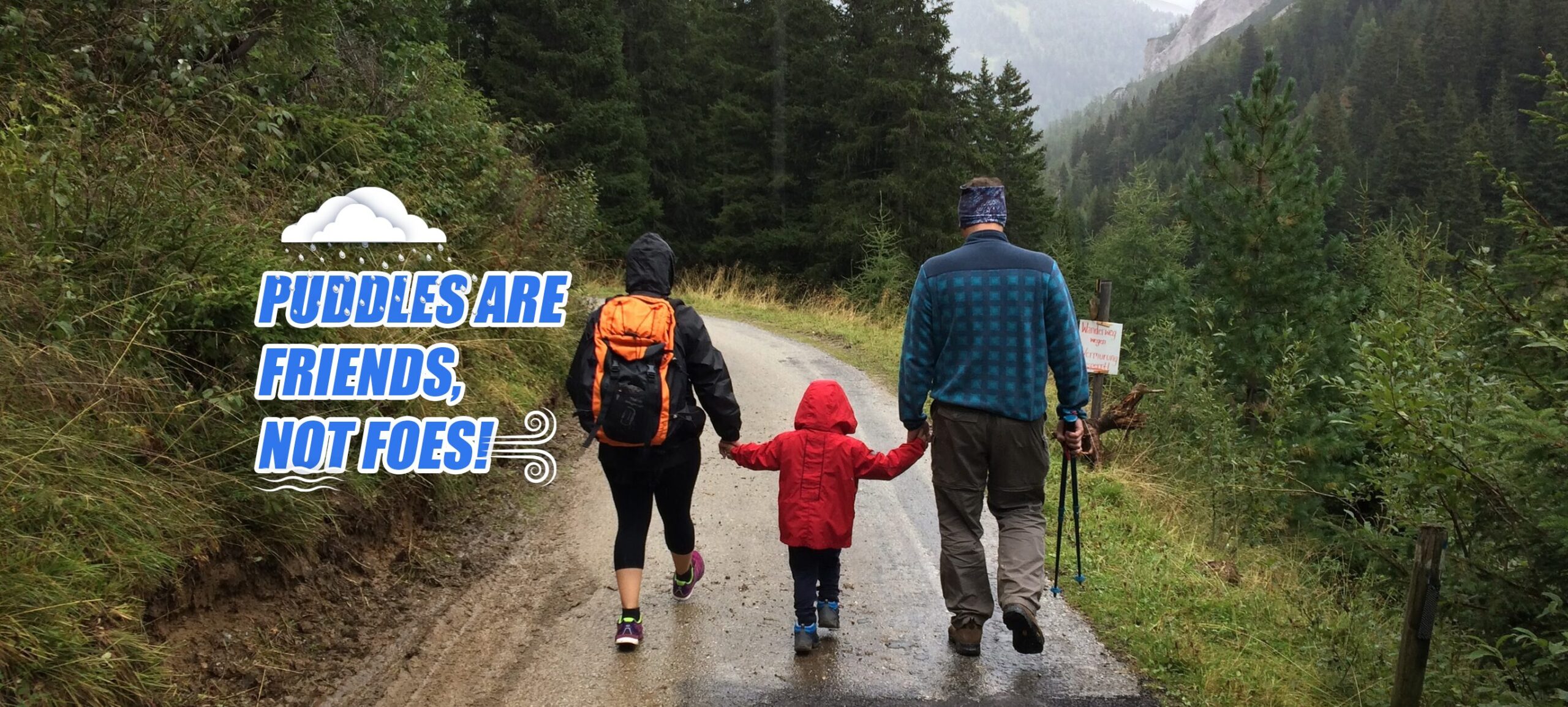The seasons have turned, and the first chill of Winter is upon us. As such this is the perfect time to address the importance of outdoor play during Winter for your children. As Outdoor Educators, Wilderness Escape operates year-round, taking kids out on day adventures and overnight camps regardless of the season. And there is one very important reason why. It’s good for them!
We understand that there is a lot of natural concern around the prospect of having your child outside during the cooler months. Parents worry about their children getting ill, or not enjoying being outside in the different weather. They even worry about them being injured as ground becomes trickier to negotiate. Over all the common supposition is that Winter is somehow harmful for children. In fact, the opposite is true.
Engaging in outdoor play during winter has been shown via multiple studies1 world-wide to be very good for kids’ health. Still unsure? Let us explain further.
Key Benefits of Outdoor Play during Winter
1. Reduces spread of infections and boosts immunisation
Amongst the biggest fears of parents during Winter is their children getting sick from being exposed to cold and/or wet weather. Studies however have shown the exact opposite. Being indoors for long periods exposes your child to poorly ventilated air and indoor environments, which promote bacteria and virus growth. This increases a child’s risk of getting sick, not the other way around.
Outdoors however your child is amongst fresh air, reducing the risk of heavy virus and allergen exposure. Furthermore, a report by Tremblay et al. (2015) showed that natural exposure to outdoor bacteria’s aids children in developing strong immune systems. Overall the more time a child spends outdoors the less likely they are to develop autoimmune disorders and allergies. Not to mention they also get a healthy dose of Vitamin D in the process!
So yes, it is cold and wet, but if you make sure your children are in appropriate clothing you are actually helping their immune systems.
2. Emotional and Cognitive Benefits
Being outdoors and engaging in outdoor activities promotes not only physical benefits (see below) but has also been shown to provide emotional and cognitive benefits. By encouraging outdoor play your child is provided with opportunities to learn about the world around them, how they can move within it, and be stimulated by the varying environments they find themselves in.
“Children are more curious about, and interested in, natural spaces than pre-fabricated play structures. Children who engage in active outdoor play in natural environments demonstrate resilience, self-regulation and develop skills for dealing with stress later in life.” Tremblay et al. 2015
‘But wait.’ We hear you ask, ‘surely my child can form these experiences during Summer?’. Of course they can! However, the skills, experiences, and problem-solving techniques they use are just as influenced by their environment as being outdoors in general. To simplify, they will discover and experience things outdoors during Winter that they will not during Summer.
It is also important that these cognitive learnings and emotional benefits are something that children experience all year round and are not interrupted or stagnated for half the year. Remember, as children explore their world and learn to problem solve and overcome difficulties they develop independence and self-confidence, as well as their thinking skills.
3. Increased Social Structure and Personal Development
As much as we strive to make our home environment a place of safety, fun and learning, there are drawbacks that come from interactions within a singular social unit. Over time people become attuned to those around them but such communication is limited in its familiarity. A lack of outside influence can severely inhibit our ability to adapt to people outside our immediate social circle. This is a life skill and something that is extremely important for children to learn during their formative years.
Group outdoor play allows your child the opportunity to exercise their social skills and learn how to interact with others both within their age bracket and outside it. They learn how to work together in groups, how to share, collaborate and understand others. Development of healthy social relationships, communication skills, and a strong sense of their own self-confidence and ability to advocate are all skills they will take with them into the future.
4. Physical Benefits
In Australia the recommended level of physical activity2 (or ‘play’) each day ranges from a) 1 to 3 hours of energetic play for ages 1 to 5, b) a minimum of 60-minutes moderate to vigorous physical activity for ages 5 to 17. Sounds daunting, especially when you have more than one child. Just remember, the easiest way to get your kids up and physically engaged is letting them have fun running around outdoors. Whether it is joining a local sports team, play dates at the park with friends or (for the younger ones) going on an exploration of the backyard, there are a range of options that will do wonders for your child’s health.
“When children are outside they move more, sit less and play longer—behaviours associated with improved cholesterol levels, blood pressure, body composition, bone density, cardiorespiratory and musculoskeletal fitness and aspects of mental, social and environmental health.” Tremblay et al. 2015
It’s important for your child to remain active during the winter months as physical exercise is a key part of building natural skills and motor developments that are crucial to their overall health. Staying active has also been shown to promote positive mental health and establishes good health habits for the long term.
So, what are you waiting for? Get your kids up off the couch and into an amazing day of outdoor fun!
Reference
American Academy of Pediatrics, American Public Health Association, National Resource Center for Health and Safety in Child Care and Early Education (2011) Caring for our children: National health and safety performance standards; Guidelines for early care and education programs. 3rd Edition. Elk Grove Village, IL: American Academy of Pediatrics; Washington, DC: American Public Health Association.
2Department of Health, Australian Government (2021) Physical activity and exercise guidelines for all Australians – Children and young people (5 to 17 years) [accessed 24/05/2022 – https://www.health.gov.au/health-topics/physical-activity-and-exercise/physical-activity-and-exercise-guidelines-for-all-australians/for-children-and-young-people-5-to-17-years
Montessori Academy, The Importance of Outdoor play in Winter, Learning and Development [accessed 24/05/2022 https://montessoriacademy.com.au/outdoor-play-in-winter/]
1Tremblay, M.S., Gray, C., Babcock, S., Barnes, J., Bradstreet, C.C., Carr, D., Chabot, G., Choquette, L., Chorney, D., Collyer, X., Herrington, S., Janson, K., Janssen, I., Larouche, R., Pickett, W., Power, M., Sandseter, E.B.H., Simon, B., Brussoni, M (2015) Position Statement on Active Outdoor Play, Int. J. Environ. Res. Public Health 12(6): 6475-6505

